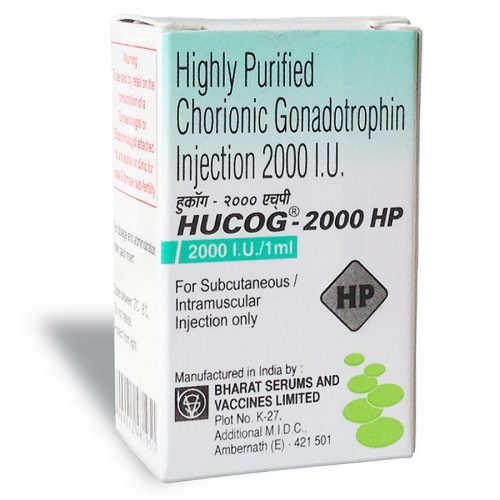Showing all 4 results
HCG
Human chorionic gonadotropin (HCG or hCG) in a low dose, which may be injected after completed ovarian stimulation, is used for final maturation and/or release of oocytes. Ovulation will occur between 38 and 40 hours after a single HCG injection. It is also used in in vitro fertilization, where it makes the follicles perform their final maturation. A transvaginal oocyte retrieval is then performed at a time usually between 34 and 36 hours after hCG injection, that is, just prior to when the follicles would rupture. HCG injection confers a risk of ovarian hyperstimulation syndrome. Recombinant HCG (rHCG), recombinant luteinizing hormone (rLH) and urine-derived hCG (uHCG) are equally effective in achieving final follicular maturation in IVF with regards to pregnancy rates and risk of ovarian hyperstimulation syndrome. Therefore, urine-derived hCG (uHCG) is regarded as the best choice for final oocyte maturation triggering in IVF due to availability and cost.
In men, it can help the body increase production of testosterone and increase sperm production, which can reduce infertility. Females may also use hCG with a very low-calorie diet to burn off unwanted fat.
Bodybuilders who take anabolic steroids uk shop such as testosterone also sometimes use hCG to prevent or reverse some of the side effects cause by steroids, such as gonad shrinkage and infertility. Male bodybuilders use hCG at the end of an anabolic-androgenic steroid cycle to prevent the breakdown of muscle tissue.


